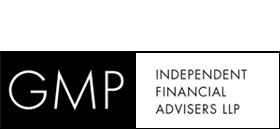Good money after bad?
May 4th, 2010
Another day, another Greek bailout. Investors may be forgiven for wondering why this latest one is any different from the others. There may also be those who, understandably enough, would question whether the total number of bailouts suggests the situation in Greece is so bad it cannot – in fact – be bailed out. Even if it does succeed, €110bn (£95bn) has been spent propping up a failing and uncompetitive nation. It is more good money chasing after bad. Of course, the most recent bailout is a little different, in that it has the backing of the IMF. Of the €110bn, about one-third comes from the IMF coffers, which once again throws up the question of moral hazard – this is money that will now, for example, not go into infrastructure projects in developing nations but instead into a nation that has spectacularly overspent, which cannot devalue its currency because it is part of the eurozone and whose population do not want to accept austerity measures. The IMF is paying a very big price tag for Greece remaining part of the euro. The question for investors, however, is really whether the Greek problems will spread and halt the public appetite for riskier assets, including equities. It is difficult to see how this latest bailout could not succeed, such is its magnitude. More importantly, although the past week has shown the vulnerability of markets to short-term corrections on the back of the Greek problem, other statistics are more important. In the longer term, it will be the momentum of the global economic recovery that will matter most and Greece will become something of a sideshow. In this context, the news the US recovery is still up-and-running is far more important. Last week saw the announcement that US GDP rose 3.2% in the first quarter of 2010, a robust performance that should reassure markets a double-dip recession remains unlikely. The growth momentum still coming from China should also reassure markets while even the UK recovery is picking up speed. Corporate earnings will be a vital sign of strength and, on that front, the news also looks good. Recent estimates from Bloomberg show around 70% of UK companies – including some of the big bellwether names such as Shell and Lloyds – beat analysts’ expectations in the first quarter of this year. The figure from the US is even higher. Ultimately, the situation in Greece is a short-term distraction from the real issues that are occupying markets. It is only if these indicators start going wrong that investors should worry that the appetite for equities is about to reverse. For all your investment needs please call MArk or Clare at GMP Independent Financial Advisers LLP on 0207 2886400

